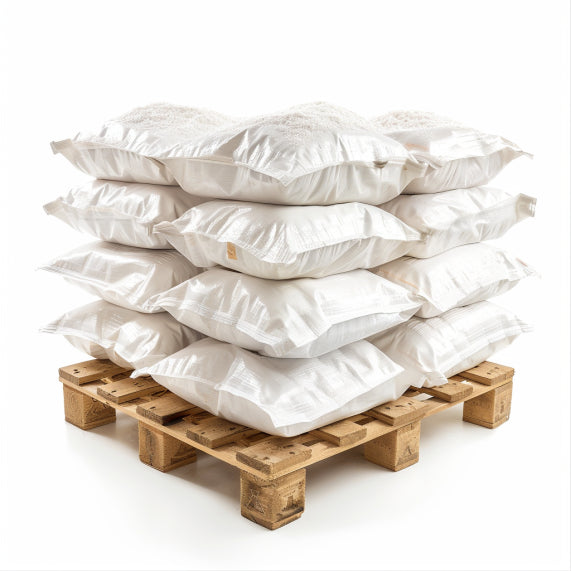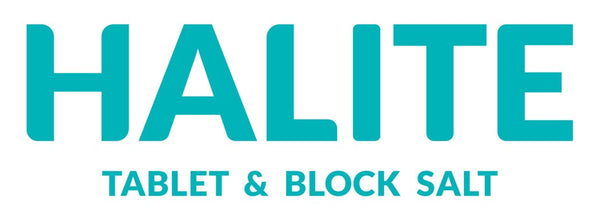Is soft water safe to drink is one of the most common questions we are asked. Soft water is safe to drink providing the sodium levels are not too high. The level of sodium in your softened water depends on the hardness prior to softening. If your water hardness exceeds 400 PPM you will need to purify your water further before drinking it, this is because the calcium will have been replaced with excessive amounts of sodium during the softening process.
In short, most soft water is safe to drink however if you are in a location with particularly high levels of hardness your water may have too much sodium to be considered fit for drinking. Always consider your water levels before making drinking your softened water a regular habit.
While you will not be in immediate danger from drinking softened water many health professionals will advise that drinking high sodium level water on a regular basis is not conducive to good health and can lead to complications.
- Can you drink softened water?
- Drinking softened water side effects
- How to make soft water drinkable
- Is hard water safe to drink or is it bad for you
- Benefits of hard water
- Drinking hard water side effects
- How bad is magnesium for drinking
- Is limescale bad for you?
- Does boiling water reduce hardness?
- Disadvantages of drinking boiled water
- Soft water vs hard water for drinking
Can you drink softened water?
Can you drink softened water? Yes you can! Softened water is still perfectly safe to drink, providing the levels of sodium are in the standard expected range. As mentioned above, there are cases where very hard water supplies require a large amount of sodium in order to soften the water and therefore make the water supply unbalanced.
Just because most softened water is safe does not necessarily mean that all softened water is safe to drink. If you have any health conditions that you feel may be affected by softened water please do consult a medical professional as each case differs from person to person. The sodium in softened water can lead to blood pressure issues and put strain on your kidneys.
Drinking softened water side effects
As we have discussed above, drinking softened water is usually quite safe however there can be side effects from drinking softened water.
There is a slightly higher amount of sodium within softened water so it can elevate your blood pressure. Once again, we are not medical professionals at all and we cannot say if softened water is suitable for you to consume if you suffer from blood pressure related ailments, so please do consult a medical professional. Too much sodium and high blood pressure can put strain on your kidneys and heart, whereas a little added sodium can be safe for most people it can affect everyone differently.
Most people will not encounter side effects from drinking softened water, generally most water supplies do not require large amounts of sodium in order to be softened. If your water supply is coming from a particularly hard source this is when larger amounts of sodium are used and therefore would have more side effects.
How to make soft water drinkable
If you are looking to make your own soft water more drinkable and are worried about the levels of sodium in your water you have some options. One option is to use a reverse osmosis filter. This will purify your water supply by using a semi-permeable membrane to remove salt and other particles leaving you with clean purified water.
Using reverse osmosis systems to purify your water is a great idea and cannot do any harm but is not necessary for most people drinking soft water. It is only required for people who are worried about the added sodium introduced by the softening process.
Is hard water safe to drink or is it bad for you?
We have learnt that soft water may not be suitable for some people with high blood pressure or other kidney and heart related ailments, but is hard water safe to drink?
Hard water is water that contains a larger proportion of minerals such as Calcium and Magnesium. Calcium and Magnesium are both minerals required for human consumption albeit in small amounts. They are not dangerous and will not harm the consumer unless they are is an abnormal level of the minerals present in the water supply. Most people want to avoid using hard water in their homes for cleaning as it can leave mineral deposits behind on glassware and surfaces and also leave laundry feeling rough and hard. Drinking hard water can actually have heath benefits as you can read in the next section. Hard water is usually softened by using salt in a water softening process. Calcium and Magnesium are both minerals required for human consumption albeit in small amounts.
Benefits of hard water
A lot of studies actually point towards the drinking of hard water having positive effects on the consumer. The added calcium and magnesium can bolster the daily recommended intake that is suggested by health professionals. There has also been speculation and consideration on hard water having a positive effect on the cardiovascular system. When showering or washing with hard water you may find that it leaves your skin and hair feeling dry.
Drinking hard water side effects
The side effects of drinking hard water are minimal, but there can be side effects such as dry hair and skin you may want to consider softening your water. One big side effect of drinking hard water, although it is not long lasting is the taste. Some people may find the taste of hard water off-putting due to the large amounts of calcium and magnesium. There are some who insist on heavy water having a much better taste than softened water. There is so much demand for hard water to be more appealing to drink that brands such as Yorkshire Tea make it their main marketing ploy.
A lot of our customers use our block and tablet salt within Kinetico and Harveys water softening systems to combat the side effects of hard water.
How bad is Magnesium for drinking?
As far as research goes, there are no adverse health effects from Magnesium in drinking water. Magnesium is another mineral that is found within water supplies across the world and is particularly present in hard water. The stand out attributes of consuming excessive amounts of Magnesium are the laxative effects that may be experienced. Do be aware that if you are experiencing diarrhoea or digestive issues then it could be down to the magnesium levels in your hard water, although it is quite unlikely. As mentioned above, Magnesium even has some health benefits such as reportedly helping prevent cardiovascular disease.
Is limescale bad for you?
If you are still wondering if limescale is bad for you then we have some good news. Limescale is present in a lot of hard water and can have an unpleasant mineral heavy taste. The minerals which form limescale are however important to a healthy mind and body. You may find that drinking heavy water with limescale actually boosts your daily intake of these minerals where it was previously lacking. If you can get past the taste of limescale in water your body may thank you!
Does boiling water reduce hardness?
If you cannot get your hands on a water softening system from us here at Halite, Kinetico or Harveys you may still be looking for a solution. Boiling your water at home does reduce hardness by reducing the calcium content. This is due to the precipitation of dissolved minerals. Boiling is a cheap and easy way to reduce the hardness although it is slow to soften large amounts of water. Think about how many kettles, pots and pans you would need to use to soften the amount of water you require and you will find that generally it is only useful for small amounts.
Disadvantages of drinking boiled water
You may decide that boiling water at home is suitable as you only require small amounts at any one time. This is understandable if you are going to be washing some clothes by hand for example. You would just need a small buckets worth. However if you feel like softening your water at home due to the taste of minerals in your heavy water supply, you may want to think again before drinking boiled water. Although boiling water can kill bacteria and organisms and is known as a critical process in survival situations where a water supply may be contaminated. There are some disadvantages to drinking boiled water.
You can lose taste in the water leaving it flat and bland. You may also find that any minerals that do not boil off remain concentrated and rather than removing them from your water supply you just increased their PPM count by removing the water due to boiling and leaving the residue behind.
Soft water vs hard water for drinking
If you are looking to see which is the better option for regular drinking consumption We can understand how both types of water can appeal to the consumer. However it is without a doubt much better to drink hard water than soft water. Soft water is generally used for cleaning, laundry and other domestic duties. The minerals present in hard water are paramount for human consumption and although it does not matter in which way you consume them, having them come to you continuously through regular consumption of water is a fail safe way to make sure you are hitting your daily recommended intake.
It is still a personal choice though, if you decide to regularly drink your softened water just be sure to discuss with a health professional if you notice any discomfort or irregularities. As we discussed at the beginning of this article, soft water can have an adverse effect on high blood pressure and can also impact kidney function.
At Halite salt we have the best quality salt from the Siwa Salt Oasis in Alexandria, Egypt. If you are using a Kinetico, Harveys or other brand name water softener, you may think you have to exclusively use their branded salt. That is not the case. Our salt comes from the same location as many of the big brands and costs a fraction of the price. You can save up to 50% on your water softening bill by switching from branded salt to Halite Siwa Salt.
Absolutely no harm can come to your water softening appliances by using our salt and if you are unsure about changing supplier then you ]can take advantage of our introductory offer by getting 50% off your first purchase by clicking here.
If for whatever reason you are unsatisfied with the quality of our salt we offer a 90 day money back guarantee and free shipping on all orders across the UK.
If you still have questions about whether water softening is a viable and worthwhile practise then check out our blog to discover more about water softening and the applications where soft water can be of benefit to you in your daily life.


